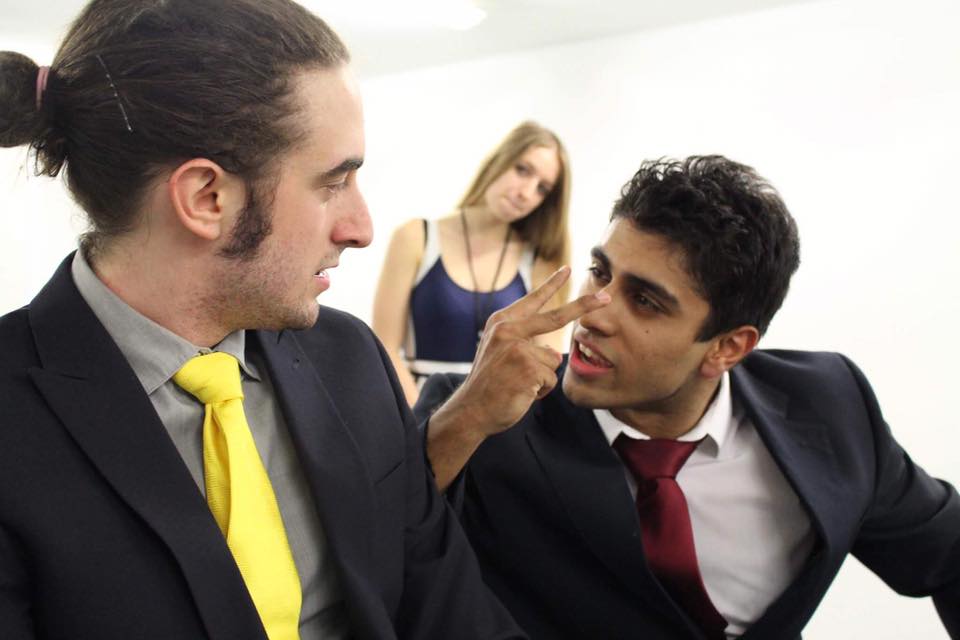
Image by Sophie Morgan
Susanna Clark reviews The Student Workshop’s production of Never Swim Alone.
The Student Workshop’s production of Never Swim Alone is, simply put, a triumph. Frank (played by Jack Read) and Bill (played by Azan Ahmed) are two adult men who were once childhood friends and maintain a façade of the continuation of this friendship, despite their destructive rivalry. The play is structured as a competition with 13 rounds, each of which is judged by the referee (played by Tabatha Gregg). In each round the men attempt to prove their superiority over each other: whichever man argues his case best is awarded a point by the referee. The points are recorded on a whiteboard in a prime position for all to see: a reminder of the constant struggle amongst men to prove themselves against their peers.
The play is an abstract satire which doesn’t take place in a physical plane, rather, a taped-off section of the performance room plays host to a metaphysical exploration of two men’s psyches and the skeletons in their past. Interestingly, the tape that delineates the performance space is pulled off part way through the play by the seemingly mediating presence – the referee. This occurs as a physical fight breaks the controlled limits of the referee’s regulatory power over the competition. The referee, it is slowly revealed, is not who she seems at first, she is actually highly manipulative and, whilst she does at times prevent the men’s arguments from going too far, she is also the force prodding them into fighting more at times. She is a highly symbolic presence from Frank and Bill’s past who holds the keys to their present conflict.
As the play’s 3-day run has sadly come to an end I can share with you the play’s secret. The play’s male protagonists are, in fact, haunted by the memory of a girl from their childhood who drowned at the beach due to the boys’ preoccupation with beating each other in a swimming race. This ghost is incarnate in the form of the referee. She plays the role of judge, congratulating the victor of each round by holding up his hand. Rather than giving them the space to learn from their past mistakes the referee pits the men against one another constantly in a parodic extension of their younger rivalry. She facilitates the spiralling out of control of their competitive spirits, though, of course, some responsibility must be taken by Frank and Bill themselves.
The play explores the pressures of masculinity – the societal expectation that men should show no emotional weakness. Instead of discussing their shared trauma and seeking a solution to the scars it has left on them, the men allow their competitive spirits to overcome them in a desperate bid to not be the first man to admit weakness. The play is also a satire on the business world, the petty bitching and false camaraderie that can infect certain workplaces is present in the play: from virulent and sharp-witted character assassinations to smaller, more careful touches, such as the competition over knee touching in which a gesture of familiarity becomes a playground-style wrestling match, all the way to the brazenly animalistic literal pissing contest.
The acting in the play was outstanding, making an abstract, conceptual piece highly immersive as the emotions of the complex characters make for a riveting performance. I found myself empathising with characters who are downright unlikeable. The cast and crew’s exceptionally hard-work since the start of term definitely paid off and I look forward to Alex Hick’s next directorial effort.
